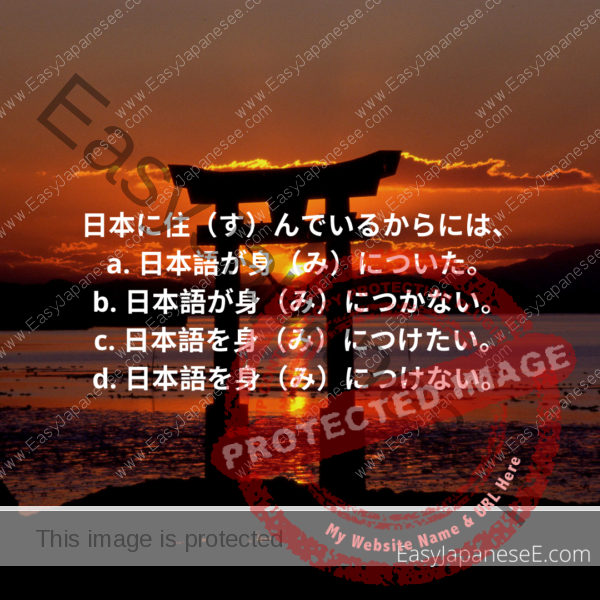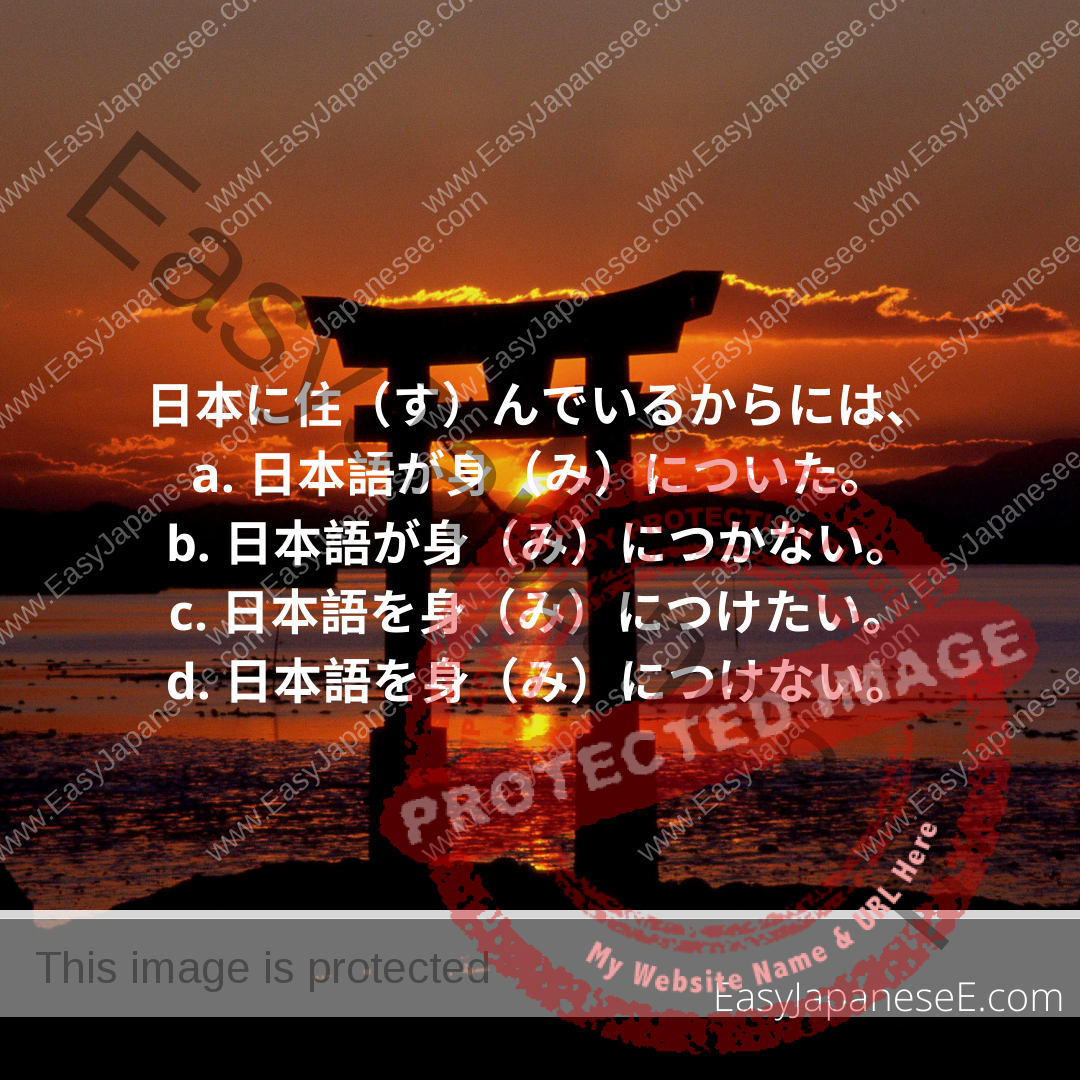Today’s Question

Today’s Grammar Point: ~からには…
~からには… is used when the condition stated before からには will inevitably lead to the statement after からには and it is often used to express the speaker’s resolution or judgement and phrases like …なければならない、….つもりだ、….に違いない are often used after からには. Possible translation could be “Now that ~, ….” ”Given that ~, ….” “As long as ~, …..”
Connection
[plain verb] + からには
[noun] + である + からには
[いadjective] + からには (rare)
[なadjective] + である + からには (rare)
Examples of ~からには…
やるからには一生懸命やる。
Because I’m doing it, I will do it with all my might.試合をするからには、絶対に勝ちたい。
Now we are playing a match, I definitely want to win.日本に住んでいるからには、日本語を身につけたい。(Today’s Question sentence)
Now that I live in Japan, I want to master Japanese.今までオーストラリアに住んでいたからには、花子さんは英語ができるに違いない。
As she was living in Australia until recently, Hanako must be able to speak English.元気になったからには、学校に行けるはずだ。
Now that you are well, you should be able to go to school.約束したからには、やり遂げないといけない。
Because I’ve made a promise, I must complete it.学生であるからには、勉強しなければならない。
Given that you are a student, you must study.プロ選手だったからには、サッカーが上手に違いない。
As he was a professional, he must be good at soccer.高いからにはそれなりの理由があるのだろう。
Since it is expensive, there will be an appropriate reason for you.チョコレートケーキが好きであるからには、チョコレートも好きなはずだ。
If you like chocolate cake, you must like chocolate as well.
Answer to Today’s Question: c
For translation, see above.
a. 日本語が身についた means “I have mastered the Japanese language,” so if the beginning said 日本に住んでいるから, this is the choice, but with には, this is not appropriate.
b. 日本語が身につかない literally means “the Japanese language does not stick to me” which can be interpreted as “I cannot master Japanese” and this does not suit the context.
d. As つけない is the negative of the “transitive” verb つける, 日本語を身につけない means “I don’t master the Japanese language intentionally.” If you want to make a statement that you are not going to study Japanese EVEN THOUGH you live in Japan,” the sentence should be 日本に住んでいても、日本語を身につけない or 日本に住んでいるからといって、日本語を身につけるつもりはない。

